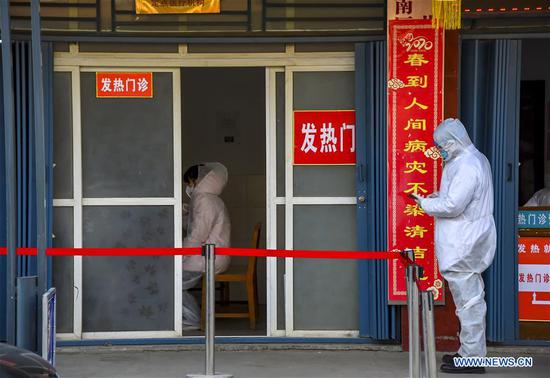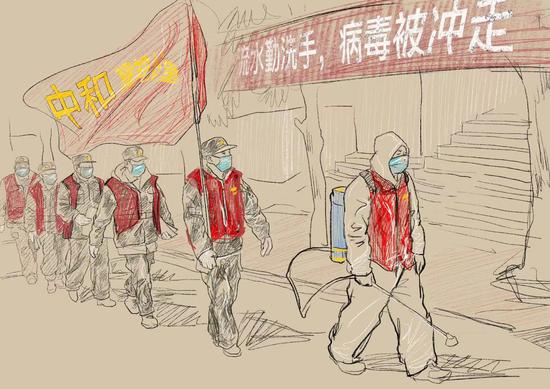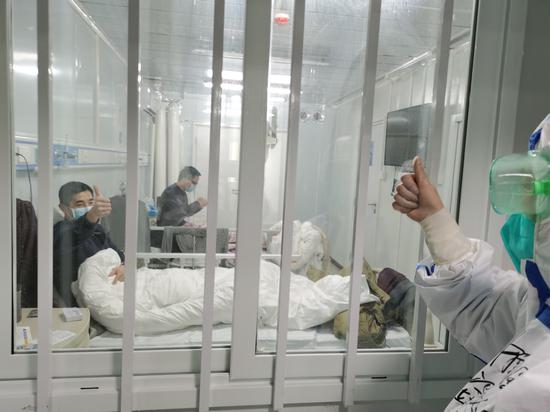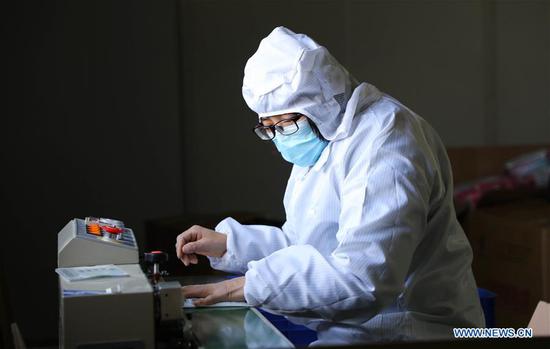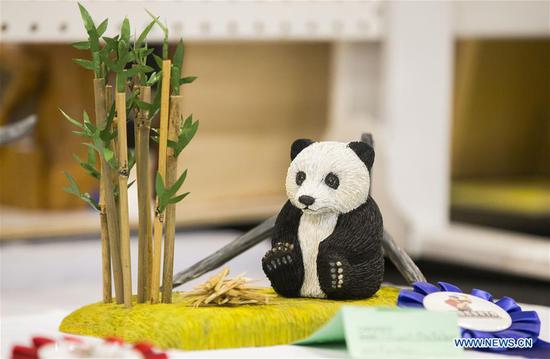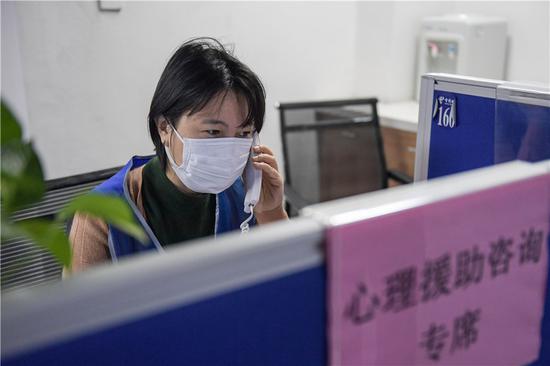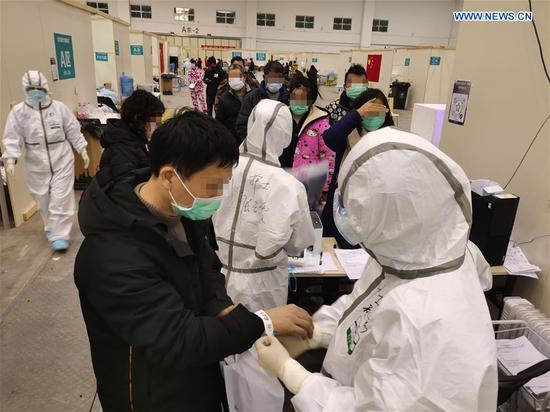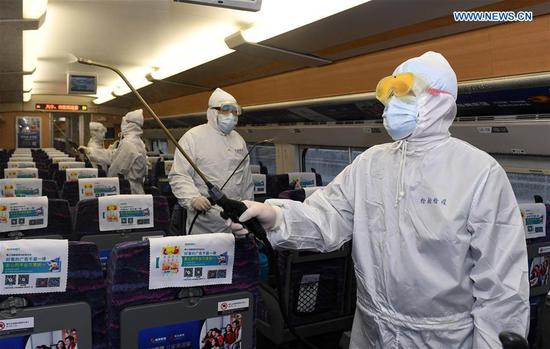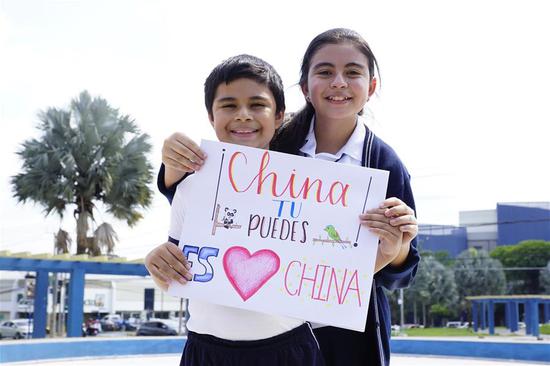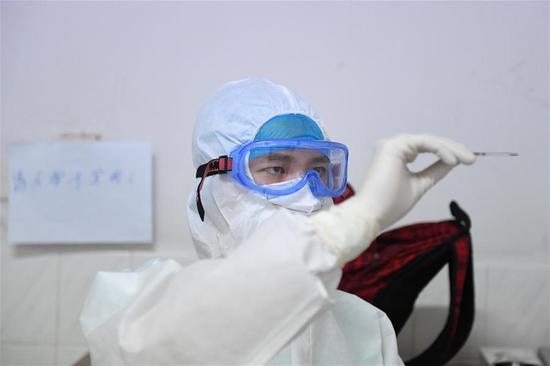An advance team of the World Health Organization arrived in Beijing on Monday amid the outbreak of novel coronavirus pneumonia, a spokesman for China's National Health Commission said on Monday.
They will join with Chinese experts to conduct in-depth exchanges on the situation and epidemic prevention and control, said commission spokesman Mi Feng.
They will also offer suggestions for China and other affected countries to work together in epidemic prevention and control, Mi said.
"We welcome experts from all countries, including the United States, to participate in the team of experts. We believe that after consultation and communication, we can make appropriate arrangements for the joint team in China," he said.
Foreign Ministry spokesman Geng Shuang said on Monday that China has been communicating and strengthening cooperation with the WHO and the international community in an open, transparent and responsible manner and works with them to safeguard global and regional public health security.
Before sending the team to China, the WHO warned "trolls and conspiracy theories" are undermining the response to the new coronavirus.
WHO Director General Tedros Adhanom Ghebreyesus told reporters that misinformation was "making the work of our heroic workers even harder".
He said misinformation about novel coronavirus pneumonia "causes confusion and spreads fear to the general public".
"I would also like to speak briefly about the importance of facts, not fear," Tedros said. "People must have access to accurate information to protect themselves and others."
False theories spread about NCP have included claims that intelligence agencies or pharmaceutical companies are behind it.
There has also been a video circulated of a woman eating bat soup — including claims that bats are linked to the virus' spread — and claims the virus is linked to snakes.
The reports said the bat soup clip was filmed in Wuhan, the epicenter of NCP, when the outbreak was first reported. The woman, however, said the video was made in 2016 in Palau, in the western Pacific Ocean.
A scientific study released last month and now widely discredited linked the new coronavirus to snakes — leading to global headlines dubbing it "snake flu".
"At the WHO, we're not just battling the virus, we're also battling the trolls and conspiracy theories that undermine our response," Tedros added.
"As a Guardian (newspaper) headline says today, 'Misinformation on the coronavirus might be the most contagious thing about it'."
Tedros cited an article published in the Guardian's opinion section in which epidemiologist Adam Kucharski argues that the best way to combat such online falsehoods is to "treat them like a real-life virus".
Kucharski discusses the discredited scientific paper, which speculated that the new virus had genetic characteristics that implicated snakes as the source.
He noted that "leading geneticists were quick to point out that the results weren't convincing, and that bats were still the likely suspects".
"Ensuring the public has the best possible health information is crucial during an outbreak," Kucharski said. "At best, misinformation can distract from important messages. At worst, it can lead to behavior that amplifies disease transmission. The novelty of coronavirus makes the challenge even greater, because viral speculation can easily overwhelm the limited information we do have."










